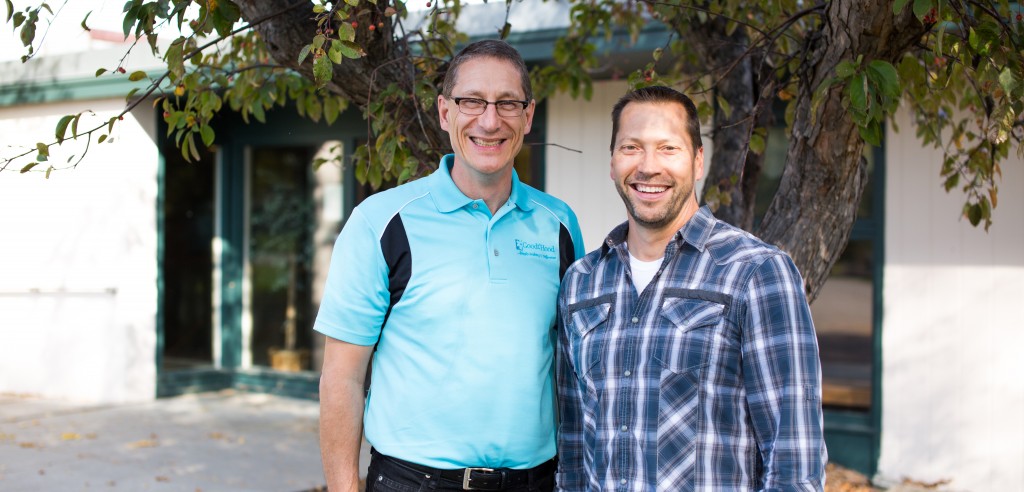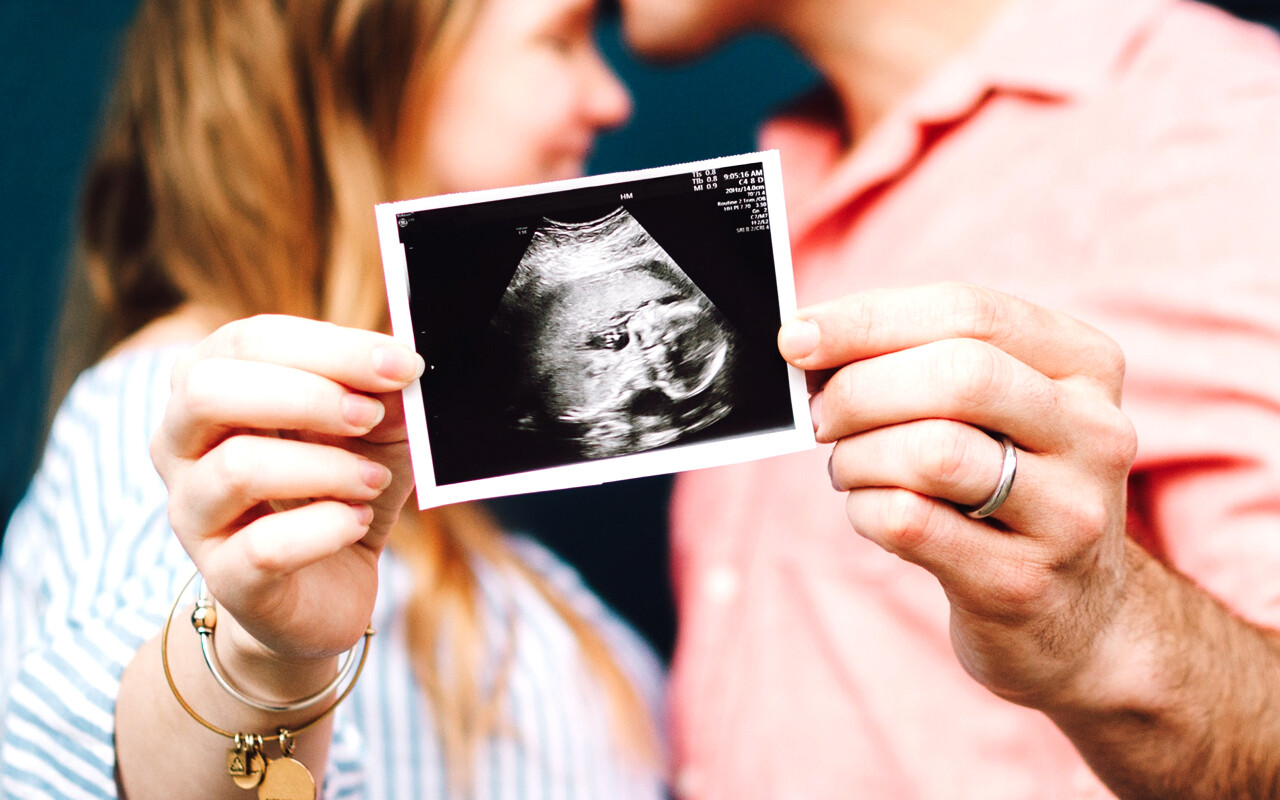
Jason Anderson, the former campus pastor of Eagle Brook's Woodbury campus, sat down with Rev. Shawn Morrison, the executive director of Good in the 'Hood, to talk about this organization's holistic approach to ministry and evangelism. Good in the 'Hood exists to influence, inspire, and impact individuals, families, and entire communities for good. It seeks to change lives with simple acts of kindness. Located in Bloomington, Minn. at Cedarcrest Church, Good in the 'Hood serves those in need of basic resources, such as food and shoes, through their Christ-centered ministries.
Eagle Brook has been in partnership with Good in the 'Hood for nearly five years. We've hosted shoe drives for Good in the 'Hood across our campuses and brought in tens of thousands of shoes to resource their ministry operations so that they can reach people for Christ.Good in the 'Hood and Eagle Brook share a common vision to reach people and help them live out their God-given potential.
Reverend Shawn Morrison is the Executive Director of Good in the 'Hood. The foundation of Good in the 'Hood was developed while Shawn was on staff at Bethany College of Missions (now Bethany Global University). As the outreach and evangelism director, he led a cross-cultural training program for missionaries and developed a local outreach strategy. As Bethany moved more toward global missions, Shawn took the outreach strategy he had developed and turned it into Good in the 'Hood in 2003.
What is the heart of what you do at Good in the 'Hood?
God began just showing me how kindness was a means of outreach in the Scripture. The one passage that I always use because it was really striking to me is that "The loving kindness of God leads to repentance." It is in Romans chapter 2. Not just random acts, but intentional, focused acts of kindness. And our goal, then, was to create a contagious momentum of kindness. Something that would somewhat go viral. So, I was going to call it "Kindness Inspiring Neighborhood Decency," but it didn't have kind of the ring to it, so I went with "Good in the 'Hood."
For a few years didn't do much with it, frankly. I mean, just dabbled a little bit, and did some things to support local churches, that kind of thing. About 2009, we really felt like we needed to establish this a little more. There were some really good opportunities, and food became one of those gateways, and so we began establishing our principles: quantity, quality, opportunity, and community.
Quantity and Quality
Quantity is the gateway, providing practical provision for those in need. And that's offering it at no charge, but we really want to engage people. But, then quantity goes toward quality. How do we do things where there's better quality-of-life opportunities for participants? We want to help them have a better future. On a food level, that might mean healthier eating, helping them get nutritional training, learning how to prepare meals so they stop eating out or just eating processed food.
Opportunity and Community
The third is opportunity, and in my opinion, opportunity is the key. It's where we take someone who is a recipient and invite them to become a volunteer. We don't mandate it, but we lead them to it. I want them to make the decision to not just receive, but participate through volunteering—we give them a sense of dignity and significance. We're trying to make sure we inspire and we influence as well as impact. And so that's a gradual thing. You have to be willing to go the long haul. You won't see an impact as quickly. It gets them involved, and then they learn the task, and then the next step is to give them responsibility, give them a leadership role where they have to oversee somebody. When we have somebody counting on us in the Kingdom, it raises our game and forces us to mature, not only behaviorally but emotionally and spiritually. The community then happens because now they own it. It's not us doing ministry around them; they're doing it with us.
We activate people and then we integrate. In many ways, we're doing discipleship before they are saved. We're trying to help them understand teamwork and participation and the value of work itself, the theology of work. And we do it very informally, but by the time, Lord willing, they get saved, they've actually understood what it really means to be not only a valuable Christian, but a useful Christian.
It's very missional and strategic, and it's very subtle because it's not the proclamation so much as it's the demonstration. We do proclaim, but it's really about the demonstration that leads to that proclamation. We build trust, which leads to greater opportunities.
What are a few key services that Good in the 'Hood provides?
Groceries is the most common one. We never endeavored to be a grocery provider but poverty was moving out to the suburbs as well, and we felt we had to do something about it. We also provide hot meals at the food shelf for families who are picking up groceries. We do that at our headquarters in here Bloomington, and Cedarcrest Church and in North Minneapolis at Beacon of Hope Church. We started small, serving nine families in the community. Now, out of this site, we're serving about 500 families a month.
And then we do Adopt-a-Family, where you sponsor a family and we give them a shopping experience around the holidays.
And we have the Shoe Away Hunger program, where we take donated shoes and sell them for a suggested donation of $5. Those profits are then turned around and funneled back into our food programs. We also have a foot care program that we have a partner with called Sole Care for Souls, one of my favorite ministries. It's Christian nurses that do foot care on diabetics and homeless, and they can do foot soaks and they trim the nails and they just love on them. It's so powerful. You've got somebody who's homeless, who has terrible feet. Often their socks are just tattered, they've got blisters and callouses and corns. And they're embarrassed. And somebody cares for them where they're at, and the person that's caring for them is at the powerless position at their feet. It gives them dignity.
Do you have a favorite story that demonstrates how God is working through Good in the 'Hood?
One day we had some extra food [after an event], and I didn't want it to go to waste. We were down in South Minneapolis, and I knew if I went door-to-door to give this away, and said, "Here, do you want some food?" they would be too embarrassed to say yes. But I knocked on the door of this house and a kid opened up the door, and I said, "Is your mom or dad home?" "Well, my mom's home," she said.
When her mom came to the door, I said, "What's your name? My name's Shawn." Her name was Rochelle. I said, "Rochelle, we have a ministry down the street and we got donated food and we don't need it and we were wondering if you or any of your neighbors could use this." So I kind of offset it so she could feel more comfortable accepting. And she just burst into tears! She was just sobbing. I mean, the type that it takes a few minutes to compose herself.
So I said, "Rochelle, what's happening?" She goes, "I am a single mom, trying to make a living. I've got a full-time job, and I spent all of my money on food. I'm living check-to-check. I spent all my money on food, and then my refrigerator went out. My landlord will replace the refrigerator, but I don't have any money for food." And then she goes, "An hour ago, I prayed and I asked God what I should do." To see God answer a prayer is one thing, but to be the answer that God sends—woah. I tell that story and I get choked up each time. It still is fresh. This was 15 years ago. It was just one of those things where you go, "God, you're really in this. This is something special." I found that sometimes it only takes a moment to change somebody's life.
What does it look like for someone to get involved with Good in the 'Hood?
We have three types of volunteers. One is the flash volunteers which comes for an event and they just show up and you might see them a couple times here and there, but they're just when they can get here. Then you have the regular program people that dedicate themselves to a particular program, like the food shelf or Shoe Away Hunger. They show up regularly. And then the organizational development volunteers, like board members, those who help with marketing, administration, etc.
You are going to start to rub shoulders with real, everyday people. I like to call it low-tension evangelism. A lot of people, they think of evangelism as this high-tension thing, and it's our biggest challenge is to overcome our own fears and insecurities. Just love people the way Jesus does—everybody can love! So if you want to come and be evangelistic in a context of a team, and yet have tremendous opportunities to demonstrate your faith and share it without this sense of obligation, this is the place for you. It's just shaking someone's hand when they come in for a meal or groceries, asking, "How are you doing today?" "Well, it's been a tough day." "Really? Can I pray with you?" It's that simple. And, most often, it's just listening. Ask questions that are open-ended. Just ask about them! And don't feel any obligation. Just, as you get the opportunity, as the grace of God is with you, take it to the next step.
And so it's low-tension ministry to be able to reach lives and to have an impact both practically, showing God's love, but that also impacts the eternal. We have to practice presence and relational proximity. In today's world, relational proximity is far more important, be a person who's present and powerless. Those in power and institution are not trusted, so how do we become powerless and allow them to have significance and then through that we build trust and friendship, and then when they're in crisis, guess who they're calling? The person they trust and the person they consider a friend.
We always talk about trusting God. He entrusts the gospel to us. He trusts us. And I think the most important factor in the Kingdom is trust. And I think in any relationship. Any time you don't have trust, you have to have collateral, and people aren't as vulnerable. But when you have trust, people are vulnerable. So if we could become experts at establishing trust, ministry would become so much easier.
To get connected with Good in the 'Hood and begin to volunteer, register here.


